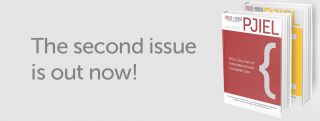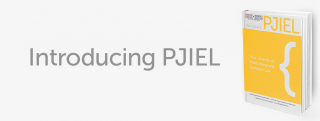
PJIEL – 2017/2.
The editors are pleased to present issue 2017/II of the Pécs Journal of International and European Law, published by the Centre for European Research and Education of the Faculty of Law of the University of Pécs.
In the Articles section, Attila Pánovics focuses on the issue of non-compliance by the EU with the Aarhus Convention. Viola Vincze sheds light on the role that customary principles of international humanitarian law play in the protection of the environment, while Tamás Molnár looks at how EU migration law is shaping international migration law, specifically as regards the field of expulsion. As for this issue’s shorter reflections, Lukáš Mareček analyses the criminal responsibility of legal persons as introduced by the Special Tribunal for Lebanon. Zsolt Cseporán provides an overview of international and foreign trends regulating the freedom of artistic expression, whereas Andrei Dragan looks at current challenges facing the Dublin III regulation. Finally, Bettina Németh reviews ‘The Making of International Human Rights: The 1960s, Decolonization, and the Reconstruction of Global Values’ by Steven L. B. Jensen, published by Cambridge University Press in 2016.
We encourage the reader, also on behalf of the editorial board, to consider the PJIEL as a venue for publications. With your contributions, PJIEL aims to remain a trustworthy and up-to-date journal of international and European law issues. The next formal deadline for submission of articles is 15 March 2018, though submissions are welcomed at any time.






